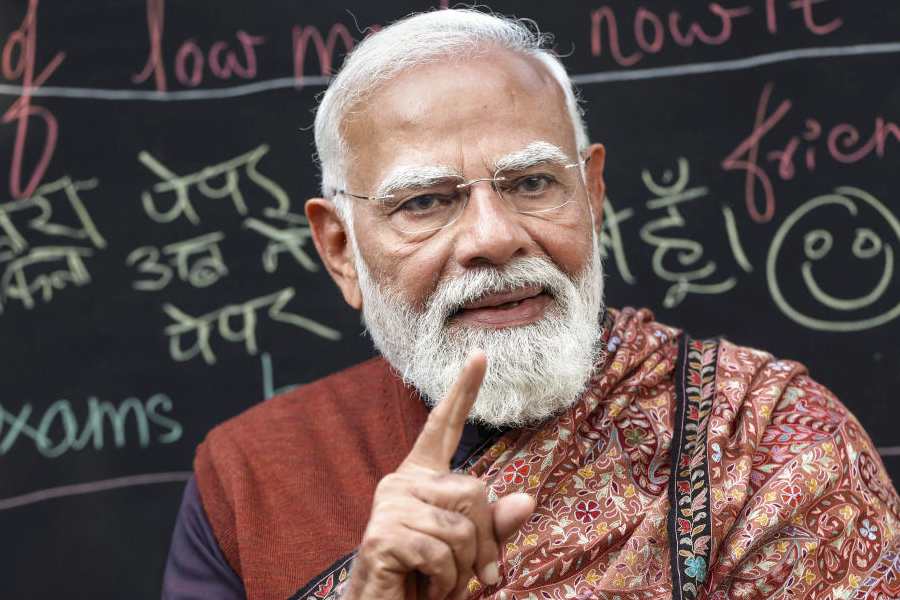New Delhi, Sept. 22: A proposed Prime Minister Research Fellow scheme that will treble the stipend for science and technology PhD scholars may compulsorily require them to work at least two years in India, a suggestion that has divided the academic community.
The scheme, which will for the first time allow BTech graduates to secure direct admission to PhD courses, will also cover those who have cleared BS-MS and MTech programmes.
Up to 2,000 candidates will receive the fellowship every year to pursue doctorate degrees at the Indian Institutes of Technology and the Indian Institute of Science, Bangalore.
But if anyone drops out of the five-year PhD programme midway, they would have to refund the entire amount paid to them, which can go up to Rs 55 lakh over five years.
Sources said the Prime Minister's Officer had suggested the two-year moratorium and the refund clause, and the proposal would be placed before the cabinet.
Probably no higher-education institution or programme in India now imposes similar conditions apart from the Armed Forces Medical College, Pune, which requires a full refund from MBBS graduates if they refuse to serve the army for a specified few years.
Efforts to get all medical colleges to impose a compulsory stint of rural service on MBBS graduates have remained unsuccessful so far.
A senior IIT Delhi teacher opposed the proposal for a two-year moratorium, saying the IITs encourage their doctorates to go abroad for post-doctoral research.
"Making them work for two years in India will lead to inbreeding (a student working in the same institute where he earned his degree) and deprive them of international exposure. Once they take a job, they may not later be relieved by the institute (for an overseas stint)," he said.
The teacher added that people should be free to make their own career decisions, and the requirement to sign a bond may discourage bright students from applying for the fellowship.
But Keshav Kumar, a philosophy professor with Delhi University, not only defended the moratorium but argued that two years wasn't enough.
"If a student's research is borne by the taxpayer's money, he is expected to serve the nation. Two years is too little; it should be five years at least," Kumar said.
Apart from IIT and IISc students, those from the National Institutes of Technology and the Indian Institute of Science Education and Research can also apply but their research guides have to be from the IITs or the IISc.
A BTech graduate selected under the scheme will receive a monthly fellowship of Rs 70,000 for the first two years, Rs 75,000 a month during the third year and Rs 80,000 a month during the last two years. In addition, a scholar will be eligible to receive a research grant of Rs 2 lakh a year.
In comparison, the Junior Research Fellowship, given to those who clear the National Eligibility Test with good scores, offers Rs 25,000 a month for the first two years and Rs 28,000 a month for the remaining three.
Under the proposed scheme, MTech holders are expected to finish the PhD programme in four years. If they cannot, they will receive only Rs 28,000 a month during the fifth year.
The IIT Council, the top decision-making body for the premier tech institutes, had proposed the scheme in August last year. It had suggested that students securing at least 8.5 Cumulative Grade Point Average should be eligible to apply, but the Union human resource development ministry slashed this to 8 CGPA.
Officials, however, said the selection of the students would depend mainly on their research proposal, which must explain the importance of the idea and how the scholar plans to pursue the research. A team of subject experts will judge the proposals in each IIT and the IISc, and a fellow under the scheme will have his progress evaluated every year.
If approved, the scheme may be introduced from the next academic year.










